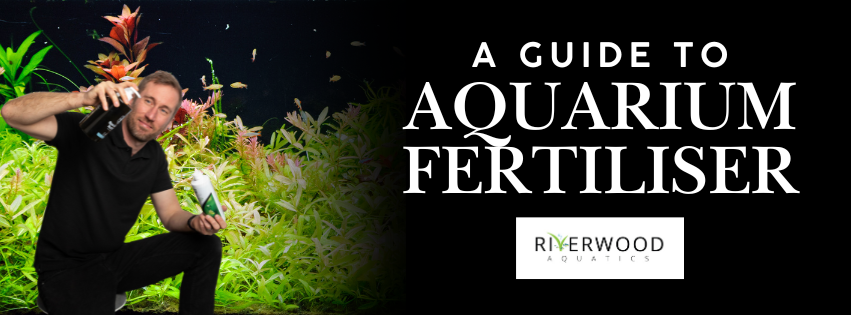A Guide To Aquarium Fertiliser
A Guide to Aquarium Fertilisers: Feeding Your Planted Aquarium
Aquarium plants are more than just a pretty addition to your tank; they play a vital role in creating a healthy and balanced ecosystem. They provide oxygen, remove harmful nitrates from the water, and offer hiding places for fish. However, just like terrestrial plants, aquatic plants require specific nutrients to thrive. This guide will explore the essential elements of plant nutrition and how to effectively use Aquarium Fertiliser in your aquarium using the right aquarium fertilisers and aquarium plant food.
Understanding Plant Needs
Before diving into aquarium fertiliser and aquarium plant food, it’s crucial to understand the fundamental requirements for plant growth:
- Lighting: Adequate lighting is essential for photosynthesis, the process by which plants convert light energy into chemical energy. Different plants have varying light requirements, ranging from low to high light.
- Substrate: The substrate provides anchorage for the plant roots and can also contribute to nutrient availability. Some substrates are enriched with nutrients, while others may require supplementation with aquarium plant food.
- Nutrients: Plants require a variety of nutrients for healthy growth and development. These nutrients are absorbed through their roots and leaves.
Essential Plant Nutrients
Plants require a range of nutrients to thrive, each playing a unique role in their growth and development:
- Macronutrients:
- Nitrogen (N): Essential for plant growth and the production of chlorophyll (the green pigment responsible for photosynthesis).
- Phosphorus (P): Crucial for root development, flowering, and overall plant health.
- Potassium (K): Plays a vital role in plant metabolism, disease resistance, and overall vigour.
- Micronutrients:
- Iron (Fe): Essential for chlorophyll production and preventing chlorosis (yellowing of leaves).
- Calcium (Ca): Important for cell wall structure and overall plant strength.
- Magnesium (Mg): A key component of chlorophyll.
- Manganese (Mn): Involved in photosynthesis and enzyme activity.
- Boron (B): Essential for cell wall formation and pollen development.
- Zinc (Zn): Plays a crucial role in enzyme function and plant growth.
- Copper (Cu): Involved in photosynthesis and respiration.
- Molybdenum (Mo): Essential for nitrogen fixation.
Plant Nutrient Demands Vary
The specific nutrient requirements of aquarium plants vary significantly depending on factors such as:
- Plant Species: Some plants are heavy feeders, while others have more modest nutrient demands.
- Growth Rate: Fast-growing plants naturally require more nutrients than slow-growing species.
- Lighting Intensity: Higher light levels generally increase plant growth rates and nutrient demands.
- Stocking Levels: In heavily stocked tanks, fish waste can contribute significantly to the nitrogen levels in the water, potentially reducing the need for supplemental nitrogen fertilisation or aquarium plant food.
Recognising Nutrient Deficiencies
Identifying nutrient deficiencies can be challenging. However, some common signs include:
- Chlorosis: Yellowing of leaves, often starting between the veins.
- Stunted Growth: Plants may appear small and weak, with slow growth rates.
- Leaf Distortion: Leaves may become misshapen or exhibit unusual markings.
- Algal Outbreaks: Nutrient imbalances can sometimes contribute to excessive algae growth.
Types of Aquarium Fertiliser and Aquarium Plant Food
- Liquid Fertilisers: These are the most common type of aquarium fertiliser. They are typically easy to use and can be dosed directly into the water column. Liquid fertilisers come in various formulations, including:
- Macro Fertilisers: Primarily focus on providing macronutrients like nitrogen, phosphorus, and potassium.
- Micro Fertilisers: Primarily focus on providing micronutrients like iron, manganese, and zinc.
- Complete Fertilisers: Contain a balanced blend of both macro and micronutrients.
- Root Tabs: These small tablets are placed directly into the substrate, providing a concentrated dose of nutrients to the plant roots. Root tabs are particularly beneficial as aquarium plant food for rooted plants.
- CO2 Injection: While not strictly a fertiliser, CO2 injection significantly enhances plant growth by increasing the rate of photosynthesis.
Dosing Considerations when using Aquarium Fertiliser
- Follow Manufacturer Instructions: Always start with the recommended dosage on the product label.
- Adjust Dosing as Needed: Monitor your plants closely and adjust the dosage accordingly. You may need to increase or decrease the dosage based on plant growth, water parameters, and other factors.
- Consider Water Changes: Regular water changes can help to remove excess nutrients and prevent nutrient buildup.
- Heavily Stocked Tanks: In heavily stocked tanks, fish waste can provide a significant source of nitrogen. You may need to reduce or eliminate nitrogen supplementation in these cases.
The Benefits of Aquarium Fertiliser and Aquarium Plant Food
- Healthy Plant Growth: Provides the essential nutrients for robust plant growth and development.
- Vibrant Plant Colours: Enhances the natural colours of your aquarium plants.
- Algae Control: By providing adequate nutrients to plants, you can help to prevent algae outbreaks.
- Improved Water Quality: Healthy plants help to remove nitrates from the water, improving overall water quality.
Proper fertilisation is crucial for maintaining a thriving planted aquarium. By understanding the specific nutrient needs of your plants and choosing the right aquarium fertilisers and aquarium plant food, you can create a lush and vibrant underwater ecosystem that benefits both your plants and your fish. Remember to observe your plants carefully, adjust your fertilisation strategy as needed, and enjoy the beauty of a well-nourished planted aquarium.
Shop our full range of aquarium plant food and fertilisers HERE.
For inspiration and advice, check out our YouTube channel.



